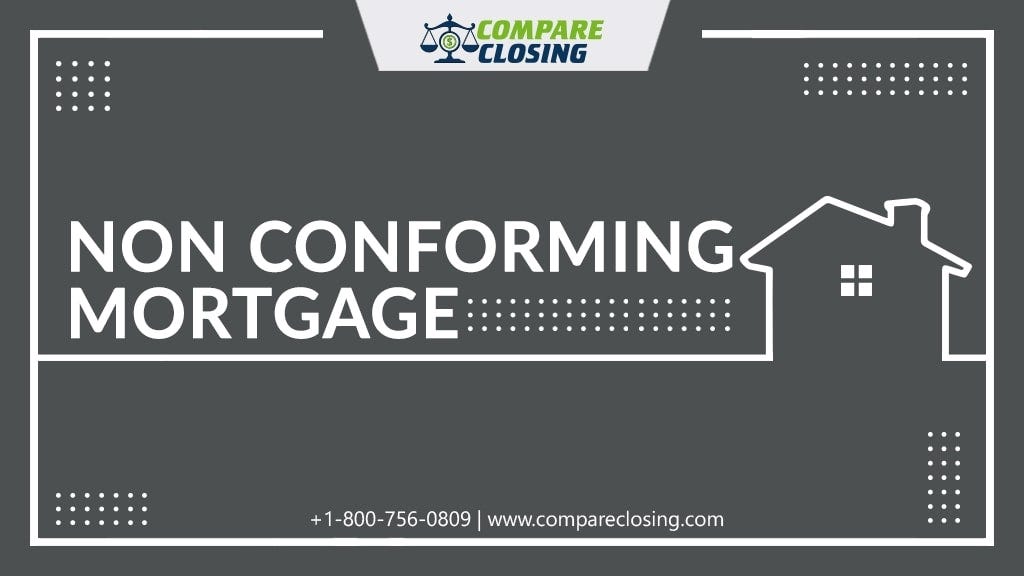
Introduction to Non conforming Mortgage
A mortgage that does not meet the guidelines of government-sponsored enterprises (GSE) like Fannie Mae and Freddie Mac and, hence cannot be sold to them is a non-conforming mortgage.
Maximum loan amount, down payment requirements, appropriate properties, and credit requirements, among other factors all, come under GSE guidelines.
A non conforming mortgage is the opposite of a conforming mortgage.
Meaning Of Non Conforming Mortgages
Non conforming mortgages are risky and overly complex. They are not popular with financial institutions because they do not conform to GSE guidelines, resulting in them getting harder to sell.
This is the reason, why banks charge a higher interest rate on a nonconforming loan.
The fact is that private banks write most mortgages, but they usually end up in the portfolios of Government-sponsored enterprises.
Fannie Mae and Freddie Mac buy loans from banks and then package them into mortgage-backed securities (MBS) that sell on the secondary market.
A collection of mortgages that got originated from a regulated and authorized financial institution gets secured into as MBS. Even if there are private financial companies who will purchase, package, and resell an MBS, Fannie and Freddie are the two largest purchasers.
The money from the sales of mortgages is used by the banks to invest in offering new loans at the current interest rate.
Not all mortgage products are bought by Fannie Mae and Freddie Mac the two GSEs have federal rules limitations to buying loans that are regarded as risk-free.
They buy only conforming mortgage loans, and hence they are popular among banks because they will readily sell.
The mortgages which Fannie Mae and Freddie Mac cannot buy are considered riskier for banks to write.
These hard-to-sell loans can either stay in the bank’s portfolio or can be sold to establishments that specialize in the secondary market for non-conforming loans.
The Different Types Of Non conforming Mortgage Loans
There are many borrower situations and types of loans that are deemed as non-conforming by Fannie and Freddie.
A jumbo mortgage — loan is the most common non conforming mortgage that is written for an amount more substantial than the limits of Fannie Mae and Freddie Mac.
In 2021, the limit in most counties of America is $548,250, however, in New York City or San Francisco, which are high-cost areas, the limit can be as high as $822,375.
To be non conforming the mortgages don’t need to be jumbo. Even a low down payment can result in nonconforming status.
However, the threshold for a down payment varies it could be 10 % on a conventional mortgage or a minimum of 3% on a Federal Housing Administration (FHA) loan.
Another factor is the debt-to-income ratio (DTI) of the purchaser, which to qualify as a conforming loan should be lower than 42 %. Also, a credit score of 630–650 is usually required.
If a mortgage is non conforming also gets determined on the type of property.
For instance, if a buyer is purchasing a condo as their dream vacation unit it is termed as nonconforming because the complex is considered insupportable.
Even condo associations where a single entity, like the developer, if he owns more than 10-% of the units they would be non conforming.
Also if a majority of the condo units are not owner-occupied, and if more than 25 % of the square footage is commercial, or if the homeowners association (HOA) is in litigation they would all be non-conforming and considered a risk to qualify for a loan.
Conclusion
A home loan that does not follow the guidelines of government-sponsored enterprises (GSE) is a non-conforming mortgage, hence cannot be resold to Fannie Mae or Freddie Mac.
Compared to conforming mortgages the non conforming mortgage loans often have higher interest rates.
Any mortgage which exceeds the conforming loan limit is termed non conforming and is called jumbo mortgage.
Not only the loan size, but mortgages may become non conforming depending on a borrower’s loan-to-value ratio (down payment size), their debt-to-income ratio, credit score and payment history, and documents submitted.
https://www.compareclosing.com/blog/all-about-non-conforming-mortgage/
Comments
Post a Comment